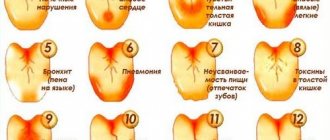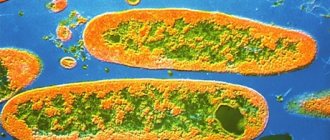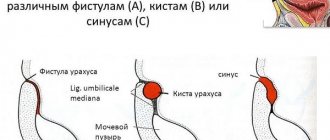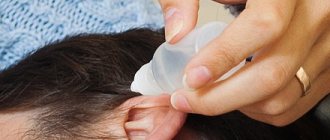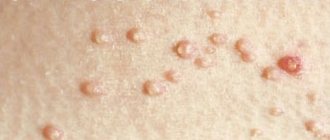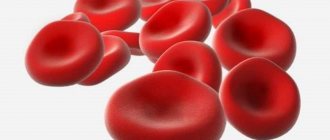Photo of what plaque looks like Today, it is rare to meet a person with a clean, pink tongue. Due to the fact that the environment leaves much to be desired, and our food is rich in various chemical additives, the condition of the human body is worsening every day. And this begins to be reflected in the language by which, in the East, diseases have long been defined and even treatment prescribed on this basis. There are cases when you can see a yellow tongue, what does this indicate? What are the causes of yellow plaque?
Can a yellow coating be normal?
A yellowish-white coating on the tongue may appear in the summer when a person is very thirsty. This coating covers the tongue with a thin layer and quickly disappears after drinking a sufficient amount of liquid.
A yellow coating will naturally appear after eating certain foods: carrots, citrus fruits, apricots, strong tea, drinks or ice cream containing dyes.
The tongue may also become colored when taking certain medications, for example, furazolidone, which is used to treat intestinal infections. Furazolidone is a yellow powder or tablet; when used internally, it turns the urine and mucous membranes dark yellow. After discontinuation of the drug, the yellowness goes away on its own.
In other cases, a yellow coating on the tongue should alert you.
Conclusion
In 3 cases out of 10, the causes of yellow plaque are problems with the digestive tract, as well as the liver and pancreas. But a light yellow tint that disappears after brushing your teeth in the morning is normal. A rich yellow tint indicates a disease of the biliary tract. Yellow-green color indicates a problem with the outflow of bile. If the plaque lasts a long time and does not disappear after a week, then the person has a problem with the liver.
Sometimes, a layer is formed by tea or coffee gourmets, as well as heavy smokers. The tongue returns to its normal color a couple of hours after stopping the use of the listed products.
Causes of yellow coating on the tongue
In adults, among all the possible factors that can lead to the appearance of yellow plaque, it is worth highlighting the most common:
- Problems with the gastrointestinal tract. As a rule, yellowness of the tongue occurs as a result of contamination of the body with waste and toxins or with the development of stomach diseases;
- Pathologies of the pancreas or liver are a fairly common cause of yellow plaque. In addition to the yellowness itself, patients feel bitterness in the mouth, which is associated with possible problems with bile;
- Consequences of taking certain medications. For example, the tongue may turn yellow after taking vitamin complexes. This is due to the various dyes that are contained in many vitamins. Their long-term use leads to a change in the color of the tongue. Strong antibacterial drugs can also cause yellowness;
- The course of viral or respiratory diseases can also lead to yellowing of the tongue, but in addition to the change in color, the patient may experience additional symptoms, for example, fever, sore throat. According to statistics, yellow coating on the tongue most often occurs with diseases such as pharyngitis and colds.
There are other reasons for the formation of yellow plaque in adults, for example, smoking, vitamin deficiency in the body, jaundice, gastroesophageal reflux disease. Mononucleosis or the development of streptococcal infection can also provoke the appearance of yellowness.
Liver dysfunction
The most common answer to the question why the tongue is yellow is associated with pathologies of the liver, as well as intrahepatic bile ducts. In this situation, the exchange of bile pigments is disrupted. As a result, the soft tissues of the body, including the mucous membrane of the tongue, turn yellow. If this happens, we are most likely talking about hepatic or parenchymal jaundice. The following diseases can provoke this condition:
- Hepatitis is an inflammatory process of the liver that has a toxic viral or alcoholic origin. In this condition, liver cells are damaged in the body, as a result of which the binding of direct bilirubin is disrupted. It is toxic to the body. Penetrating into the blood, the yellow pigment colors the urine in the characteristic shade of beer. Hepatitis can be suspected if the tongue turns yellow, the person has yellow pupils, yellow skin, he is worried about weakness, weakness, pain in the right hypochondrium due to stretching of the capsule of the enlarged liver. In this state, the yellowness has a lemon tint.
- In liver cirrhosis, liver cells die and nodules form in the liver. The restoration of the structure of the liver tissue in cirrhosis does not occur correctly, the nodes compress the bile ducts in the liver, and as a result, both the production of bile and its outflow are disrupted. The detoxification function of the liver is also impaired. The products of protein metabolism enter directly into the blood. In this condition, the patient has an enlarged liver (in the later stages it is reduced), he is bothered by dull pain in the right hypochondrium and itching of the skin. Memory and sleep are disturbed. Jaundice also develops. In this case, both the skin and tongue turn dark yellow. Therefore, if a person exhibits these signs and a dark yellow tongue, what disease this indicates should be found out immediately.
- Primary liver cell cancer is relatively rare. As a rule, liver damage occurs through metastases from tumors of the pancreas, breast, rectum, and lungs.
Stomach diseases
People who suffer from chronic gastritis or have a history of a diagnosis of duodenal ulcer suffer from a yellow coating on the tongue. In chronic diseases, part of the bile produced by the liver enters the upper parts of the digestive system. Symptoms of the pathology are supplemented by nausea and bouts of vomiting at night and during the day, sour belching, and putrid breath.
Another disease that leads to an aesthetic defect is duodenogastric reflux. The cause of the problem is the weakness of the obturator sphincter, located in the outlet of the stomach. The condition is provoked by surgical interventions performed on the abdominal cavity; hernias; pregnancy period; tumor processes in the intestines; uncontrolled use of antispasmodics and muscle relaxants.
Acute pancreatitis, like chronic gastritis, can have a negative effect on the outflow of bile from the body. Signs of inflammation of the pancreas are pain in the upper abdomen, brown and yellow coloration of the tongue, loss of appetite, nausea.
The cause of plaque on the surface of the speaking organ can be intestinal infections in the acute stage. The pathology is provoked by viruses (enteroviruses) and bacteria (salmonella, Pseudomonas aeruginosa, typhus). The disease is accompanied by frequent loose stools, nausea and vomiting. These signs gradually lead to dehydration and the appearance of a thick layer of plaque on the tongue. The more intense the signs of intoxication, the more pronounced the coating of the mucous membranes of the mouth.
Respiratory diseases
It can be difficult to remove plaque from the tongue if a virus that causes respiratory pathology enters the body. A characteristic symptom is present with tonsillitis, pharyngitis and even the common cold, which weakens the body's defenses. In addition to these signs, there is a persistent increase in temperature, sore throat, and sore throat.
Therapy begins with taking antiviral medications, which are presented as drops, tablets, and syrups. Further treatment is prescribed by the therapist based on the development of the pathology and the presence of complications.
Taking certain medications
A change in the color of the mucous membrane of the tongue is also observed in the process of taking certain drugs (furazolidone, quinine, enterofuril, cardiac glycosides).
This effect occurs for two reasons: the composition of the products includes components with increased pigmentation, and due to the effect of chemicals on the gastrointestinal tract and liver, which provokes a violation of the outflow of bile.
Treatment methods
The data obtained after completing all the necessary studies provides an answer to the question: what is the patient dealing with?
If a therapeutic pathology is detected (diseases of the gastrointestinal tract, kidneys, etc.), treatment is carried out by a general practitioner or a specialist with a narrower profile:
- gastroenterologist;
- urologist:
- nephrologist.
In the case where there is a systemic disease of the category rheumatism, syphilis, HIV, treatment is necessary in a specialized medical institution.
The presence of oncological pathology may require joint treatment by an oncologist, a surgeon and consultant doctors of various profiles: a neurologist, an ophthalmologist and others.
If there is a local microbial-viral nature of the lesion in the oral cavity, antiseptics and antibiotics recommended by the dentist can be used.
After the process subsides or during it, professional cleaning of the oral cavity is often required, without which one cannot count on the success of treatment. It may be necessary to repair or replace existing orthodontic structures in the mouth.
Personal hygiene should be ensured by the patient himself, who is interested in resolving the problem as quickly as possible.
Diagnostics
If plaque on the tongue is accompanied by gum or tooth disease, you should consult a dentist. Symptoms from the gastrointestinal tract require consultation with a gastroenterologist.
Each case requires an individual approach to determining the causes of yellow plaque. First of all, the doctor examines the tongue and oral cavity, is interested in the accompanying symptoms, when the plaque first appeared, and then intensifies.
Of the laboratory methods it is recommended to pass:
- general blood and urine analysis, biochemical blood test to assess the functionality of internal organs and identify possible pathologies;
- fecal analysis for helminth eggs is necessary to exclude helminthic infestation;
- feces on the coprogram reflects the work of the lower parts of the digestive tract.
To confirm or exclude pathologies of the liver, pancreas, and gall bladder, an ultrasound examination of these organs is performed. If pathologies of the stomach and small intestine are suspected, fibrogastroscopy or duodenal intubation is prescribed. Since yellow coating on the tongue is a symptom that most likely occurs when there is a malfunction of the liver and bile ducts, emphasis is placed on examining the gallbladder and liver.
Why does yellow plaque appear?
Before we begin to consider the pathological causes that cause a yellow coating on the tongue, an adult should exclude some provoking factors that are not associated with the disease.
Why the mucous membrane may turn yellow:
- food/drink - especially black coffee, tea, fresh carrot juice, store-bought juices with food coloring, vitamins with ascorbine, candies;
- unsatisfactory oral care – lack of thorough cleaning provokes an unhealthy appearance of the tongue;
- nicotine addiction - smokers not only turn yellow on their fingers and teeth, but also have a yellow coating on their tongue from the tar;
- completed drug therapy with certain drugs - yellowing is possible from antibiotics, Furazolidone, Enterofuril, Akrikhin.
Elimination of these irritants will lead to a healthy appearance of the mucous membrane of the tongue. But before you get rid of plaque, read the article further.
Now we should take a closer look at the main reasons why the tongue in adults becomes covered with a yellow coating.
Shiyka Oksana
Dentist-therapist
In any case, only a specialist can make an accurate diagnosis after conducting a full examination. This means he will tell you what to do, why the yellow tongue appeared, and how to fix this problem.
If yellowness has shades
Some people pay attention to the fact that the coating on their tongue is not always yellow. On the one hand, this is understandable, because its shade may largely depend on the individual characteristics of the body, on the body’s reaction to the same stimulus in two different patients. But still, sometimes it is the shade that helps specialists draw their conclusions.
| Hue | Possible pathology |
| Yellow-green |
|
| Yellow-brown |
|
| Yellow-gray |
|
| Yellow-white |
|
| Yellow-black |
|
| Citric |
|
| Dark yellow |
|
How to treat yellow coating on the tongue?
It cannot be said unequivocally that if you have a yellow plaque, it needs to be treated with this and that drug. It is important to understand that each individual case is diagnosed differently, and therefore the treatment will be different. Any doctor, before starting to treat it, finds out the reason for its appearance and collects all the tests.
It is necessary to mention the main drugs that are most often used to treat this phenomenon.
1) Choleretic medications, which are taken in the presence of pathologies associated with delayed bile secretion. Among them:
- Choleretics increase bile flow and prevent stone formation.
- Cholekenics, which can increase the contractility of the gallbladder.
2) You can also name such medications as:
- Hepatoprotectors that restore liver cells
- Medicines taken for viral hepatitis
- Antibiotics
- Antifungal agents
- Dopamine blockers for candidiasis
- Electrolyte and glucose solutions
- Well-known adsorbents
- Group of vitamin B12 preparations
So, if we talk about the treatment of yellow plaque, then after the doctor determines the cause of its appearance, he will immediately prescribe treatment. Usually, doctors prescribe medications, and if it is associated with gastritis or ulcers, then also a diet.
Localization
Yellow coating on the tongue can be located on different parts. It is known that the tongue is a kind of map of the human body. Each part of it is responsible for an organ. For example, at its tip there are nerves that are responsible for the work of the heart, and on the sides for the lungs. If we talk about the lateral parts, then on the left are the sections responsible for the liver, and on the right – the spleen. But the line in the middle is responsible for the condition of the stomach and pancreas.
We must not forget that its appearance should always be a cause for concern. The tongue is our body’s signal button, which can very often prevent the development of any serious disease, such as fissures, so at the first suspicion it is better to go to the doctor.
Folk remedies
Traditional recipes can help you cope with the symptoms. Decoctions of chamomile, flax seed and sage are used to rinse the mouth. Before using alternative medicine recipes, you need to know exactly why your tongue is yellow. If the pathology is associated with disruption of the gastrointestinal tract, then you can use the following means:
- Flaxseed tincture – 1 tbsp. l. of the herbal ingredient, pour 250 ml of boiling water and leave in a tightly closed container for 12 hours. The decoction is filtered and taken in the morning on an empty stomach, 250 ml.
- Decoction of plantain leaves – 2 tbsp. l. herbs are poured into 400 ml of boiling water and brought to a boil. The medicine is boiled for another 10 minutes and left for 1 hour. The product is taken 4 times a day, 50 ml on an “empty” stomach.
To prepare decoctions that stimulate the functioning of the gastrointestinal tract, St. John's wort, oregano, linden bark and corn silk are used.
Prevention
Any plaque on the tongue is a pathology. Therefore, dentists recommend carefully monitoring the cleanliness of the oral cavity and purchasing only high-quality toothbrushes. It is advisable to have a double-sided version with a reverse surface designed to cleanse the epithelium of the tongue.
Ideally, you should rinse your mouth several times throughout the day, preferably with clean water. And if you suspect an inflammatory process, it is better to use antiseptic solutions. There is only one thing you should not worry about: if your tongue turns yellow after eating colored fruits or vegetables. In this case, the color will be short-lived.
Having discovered changes in the color of your tongue, you should listen to your body and determine the source of discomfort.
In order to avoid problems with metabolism and the gastrointestinal tract, it is necessary to take seriously the formation of a daily diet, including lean meat, herbs, vegetables, fruits, fatty fish and other foods containing a lot of vitamins and microelements. Fried foods and fast food dishes are not recommended as a permanent menu. If necessary, you can choose a high-quality dietary supplement.
Glossitis Oral candidiasis Stomatitis in children: photos, symptoms and treatment Purulent tonsillitis Gingivitis Hepatomegaly
